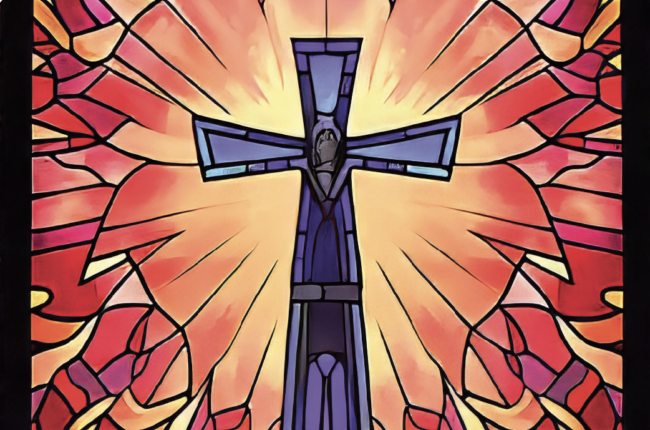Staying Catholic Despite the Political Face of U.S. Catholicism

Many of us are familiar with the official political stances of the Roman Catholic Church in the United States, particularly as seen in the positions of the U.S. Conference of Catholic Bishops (USCCB). These official stances become all the more inflammatory to the extent that they touch the central nerve of the U.S. culture wars — topics related to gender equality, reproductive healthcare, and the dignity of LGBTQIA+ people. The USCCB takes a uniformly resistant posture, to say the least.
Religious Freedom for Whom?
In this vein, we can recall the USCCB’s reaction to the Equality Act, a bill proposed to expand the Civil Rights Act of 1964 to include sexual orientation and gender identity. According to the USCCB, enacting such a law would result in numerous moral catastrophes (including, they claim, expanded abortion access). But if you read the USCCB’s position statement, you’ll find that the crux of their opposition to nondiscrimination protections for LGBTQIA+ people is their belief that such laws violate the religious liberty guaranteed by the First Amendment. In fact, so uncompromising is this religious liberty objection that the USCCB raised it again against the Fairness for All Act, which expanded protections both for LGBTQIA+ people and people inclined to make religious liberty objections. The USCCB raised these objections even though the Fairness for All Act received support from other conservative religious organizations, like the Church of Jesus Christ of Latter-day Saints and the Council for Christian Colleges and Universities, who had opposed the Equality Act.
Unyielding political stances of the USCCB based in First Amendment religious liberty claims are very familiar to progressive Catholics who, like most other Americans, support abortion access. Another in the endless list of examples includes the protracted and historic opposition to the Affordable Care Act, which was substantively based on the claim that the law would expand abortion access as a component of reproductive healthcare. But such stances place progressive Catholics in a difficult position. For many, integrity is central among their concerns. How, after all, can we be a part of a religion that, on the one hand, preaches a preferential option for the poor and vulnerable, and, on the other, officially espouses positions that make the lives of women, LGBTQIA+ people, and other marginalized people harder?

"Unyielding political stances of the USCCB based in First Amendment religious liberty claims are very familiar to progressive Catholics who, like most other Americans, support abortion access."
— Craig A. Ford Jr., Ph.D.
The situation becomes even more alarming from my vantage point as a moral theologian because it’s not just the politics of the USCCB that appear unyielding, it’s their theology as well. Consider the USCCB’s theological opposition to abortion, which is squarely based on the claim that every abortion constitutes an unjust killing of an innocent person, and — for that reason alone — cannot be countenanced in a society that values the dignity of each and every person. So unyielding is this position that Pope John Paul II, in his encyclical Evangelium Vitae, wrote not only that abortion was the moral equivalent of murder, but also that when someone seeks abortions “out of a desire to protect certain important values such as her own health or a decent standard of living for the other members of the family,” such situations, “however serious and tragic, can never justify the deliberate killing of an innocent human being” (para. 58). The implication here is chilling: In the mind of this former pope, people have an obligation to carry pregnancies to term, even in the face of death.
With hardline positions like these, what difference does it make to remain in the Roman Catholic Church, especially as a layperson? Why not go to another religious community where the theological and political stances are not so intransigent — a community without such a tight alliance between the politics of the Roman Catholic Church and U.S. political conservativism? The difference that our presence makes — and I see this as a reminder of something that we perhaps often forget — is that the possibility of any development in official Catholic teaching depends on the presence of those that model Jesus’ ministry of compassion within the church’s institutional context. This ministry of compassion does not consider adherence to doctrines the ultimate measure of fidelity, but instead leaves space for God to breathe new life into doctrines to achieve a deeper understanding of God’s will in light of our human journey toward holiness and flourishing.
Christlike Compassion
I’d like to suggest that one way to model Christ’s compassionate presence is to, like Jesus, approach those who believe that their faith commits them to rigid moral positions and to ask them what difference it makes to take human experience seriously. In the context of abortion, this means asking what difference iit makes when one takes seriously the experiences of pregnant people who believe that abortion is the right choice for them at a particular moment in their lives.
 One observation, which any reasonable person should be able to make, is that because pregnancy is the singular medical condition where one form of human life is completely and totally dependent on the physical existence of a different person, moral analogies concerning abortion —especially those that invoke murder — fail very quickly. At the very least, establishing that the life in the womb is a person — which is often the assumption of those who morally oppose abortion — is not by itself sufficient to require that that life in the womb must be carried to term, nor is it sufficient to establish, as John Paul II maintains, that the pregnant person must sacrifice their own life for the life in the womb. One needs more arguments than that. Some Christian theologians — even those with impeccable “pro-life” credentials — recognize this difference and have declined to make those arguments. Take, for example, the 2015 book Beyond the Abortion Wars by Charles Camosy, a pro-life theologian who recognizes the personhood of the life in the womb but says that such personhood does not require a “duty to aid” the fetus when the pregnant person’s life is threatened or when a person has become pregnant because of sexual violence. That’s one difference that taking the existence of the pregnant person seriously makes: It may guide people to notice possible deeper understandings of God’s will beyond official theological and political statements.
One observation, which any reasonable person should be able to make, is that because pregnancy is the singular medical condition where one form of human life is completely and totally dependent on the physical existence of a different person, moral analogies concerning abortion —especially those that invoke murder — fail very quickly. At the very least, establishing that the life in the womb is a person — which is often the assumption of those who morally oppose abortion — is not by itself sufficient to require that that life in the womb must be carried to term, nor is it sufficient to establish, as John Paul II maintains, that the pregnant person must sacrifice their own life for the life in the womb. One needs more arguments than that. Some Christian theologians — even those with impeccable “pro-life” credentials — recognize this difference and have declined to make those arguments. Take, for example, the 2015 book Beyond the Abortion Wars by Charles Camosy, a pro-life theologian who recognizes the personhood of the life in the womb but says that such personhood does not require a “duty to aid” the fetus when the pregnant person’s life is threatened or when a person has become pregnant because of sexual violence. That’s one difference that taking the existence of the pregnant person seriously makes: It may guide people to notice possible deeper understandings of God’s will beyond official theological and political statements.
If situations like these make a deeper understanding of God’s will possible, what difference does a pregnant person’s experience make in other situations — for example, where the pregnant person does not believe that it is financially or emotionally wise to bring pregnancy to term at a certain time and so seeks to terminate the pregnancy in the first trimester, when 93% of abortions occur (Pew 2023)? To be clear, much ink has been spilled on this question — and I hardly have the space to evaluate those arguments here — but my point doesn’t require that I do so. Instead, my point is to show that Christ’s compassion may open up new answers to these questions within the institutional context of the Roman Catholic Church, but only if progressive Catholics stay to witness to those sorts of answers. That is, once again, the difference that our presence makes, not just to abortion but to matters related to other justice issues — racial justice and justice for LGBTQIA+ people included.
For the inspiration to persist in offering just such a compassionate presence, I can think of no better source than Scripture. And, of all places, I find inspiration in Jesus’ encounter with the woman caught in adultery (John 8:1-11). This may seem to be a strange place to find inspiration, though, especially because the final two verses are often weaponized against the compassionate stances progressive Catholics extend. In the story, Jesus intervenes in a situation where religious leaders are about to stone a woman who has been caught in adultery. The leaders say to Jesus, “Now in the law Moses commanded us to stone such women” (8:5). In response, Jesus maintains that the only people qualified to throw stones at her are the sinless. The leaders retreat, leaving the woman alone with Jesus. Here are the final two verses:
Jesus straightened up and said to her, “Woman, where are they? Has no one condemned you?” She said, ‘No one, sir.’ And Jesus said, ‘Neither do I condemn you. Go your way, and from now on do not sin again.
Those who take moral postures similar to the public positions of the USCCB and Pope John Paul II readily concede that Jesus had compassion for sinners. Given their public posture, the USCCB would say that there are some sinners whose life choices apparently deserve public intervention — women who choose to receive abortions and LGBTQIA+ people who choose to follow their consciences into intimacies with those of the same gender or who choose to live with integrity within the gender identity to which they feel called. But people who take such moral postures go further, counseling that such compassion must always be tempered by the respect for God’s will. One must always be compassionate, in other words, but one must also not retreat from the truth in doing so.
"Christ’s compassion may open up new answers to these questions within the institutional context of the Roman Catholic Church, but only if progressive Catholics stay to witness to those sorts of answers."
— Craig A. Ford Jr., Ph.D.
In principle, I have no problem with such an interpretation. But such an interpretation becomes problematic for me to the extent that “truth” is always understood to consist in the current official positions of the Roman Catholic Church. This seems wrong for two reasons: First, as history has revealed, the official moral positions of the Roman Catholic Church have changed, sometimes even reversed, as the late federal judge and Catholic intellectual John Noonan famously demonstrated. But second, such an emphasis also misinterprets the story. The story is not about how a moral law can be applied in such a way as to withhold an otherwise valid condemnation. The story’s message is that we should avoid putting ourselves in the position of the religious leaders whose interpretation of the moral law is marked by uncompromising intransigence. In other words, when we behold the moral decisions others make, we should identify with Jesus, who invites all of us into a deeper understanding of God’s will. We must imitate his compassion.
What difference would it make it in our advocacy for justice — reproductive and otherwise — if our church imitated Jesus rather than the religious leaders? The answer is all the difference in the world. But if we want to see it happen, we progressive Catholics need to be there to make the point.



